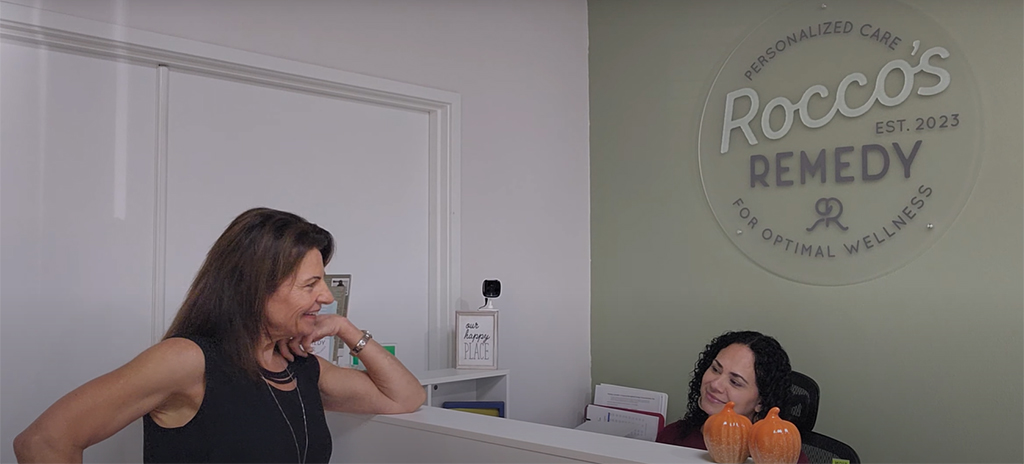Welcome to the first in our Hormone Health blog post series!
We are highlighting Hashimotos this month as we have seen patients who have been diagnosed incorrectly or prescribed thyroid medication that does not suit their needs. This article hopes to provide you with insights on Hoshimotos and potential treatment options.
What is Hashimoto’s?
Hashimoto’s Thyroiditis, also known as chronic lymphocytic thyroiditis, is an autoimmune disorder that is the most common cause of hypothyroidism (underactive thyroid) in the United States. It occurs when the immune system mistakenly attacks the thyroid gland, leading to inflammation and an inability to produce sufficient thyroid hormones.
Key Characteristics of Hoshimotos
- Autoimmune Nature: The body’s immune system targets thyroid cells as if they were foreign invaders, causing inflammation and damage to the thyroid tissue.
- Thyroid Hormone Production: As the thyroid gland becomes increasingly damaged, it’s less able to produce the hormones thyroxine (T4) and triiodothyronine (T3), leading to symptoms associated with hypothyroidism.
- Symptoms: These can include fatigue, weight gain, sensitivity to cold, constipation, dry skin, hair loss, muscle weakness, depression, and slowed heart rate, among others.
- Diagnosis: Hashimoto’s is diagnosed through blood tests that look for elevated levels of thyroid-stimulating hormone (TSH) and antibodies against thyroid peroxidase (TPO antibodies), which indicate an autoimmune attack on the thyroid.
- Treatment: While there is no cure for Hashimoto’s, treatment typically focuses on managing symptoms through thyroid hormone replacement therapy to normalize hormone levels.
Who is impacted by Hashimoto’s?
The condition can affect anyone but is most common in middle-aged women. The exact cause is unknown, but factors such as genetics, gender, and possibly infections and environmental exposures may play a role in its development.
How can I manage Hashimoto’s?
Management of Hashimoto’s focuses on monitoring thyroid function and maintaining balanced thyroid hormone levels through medication, addressing symptoms, and improving quality of life.
Diet plays a crucial role in either alleviating or exacerbating symptoms. Based on various studies and expert recommendations, certain foods are commonly advised to be avoided to help manage the condition effectively:
- Dairy and Soy Products: Both dairy and soy can interfere with thyroid function and are suggested to be avoided. Soy, in particular, is considered goitrogenic and may inhibit thyroid hormone production.
- Gluten: Gluten consumption is linked to autoimmune diseases, including Hashimoto’s, due to potential cross-reactions between gliadin and thyroid antigens.
- Processed and Ultra-Processed Foods: These foods can increase inflammation, which could worsen Hashimoto’s symptoms. It’s recommended to limit processed meats and other highly processed fast foods.
- Alcohol: Alcohol harms the thyroid gland and liver, which is crucial for thyroid hormone conversion. Limiting or avoiding alcohol is advised.
- Refined Sugars and High-Sugar Foods: Consuming high amounts of added sugars can promote inflammation and potentially exacerbate symptoms of Hashimoto’s disease.
- Certain Fats and Oils: Industrial seed oils and vegetable cooking oils, like soybean, corn, and canola oil, are recommended to be avoided due to their potential to cause inflammation.
A Mediterranean diet is a great way to incorporate food groups that improve your thyroid health. This includes:
- Lean Proteins like chicken and fish
- Seeds and Nuts
- Olive Oil
- Cooked Vegetables
- Fruits
- Beans
Rocco’s Remedy can support you in incorporating these dietary changes.
LOW-DOSE NALTREXONE AS A TREATMENT OPTION:
Hashimoto’s thyroiditis is an autoimmune condition where the immune system attacks the thyroid gland, leading to chronic inflammation and often hypothyroidism. Low-Dose Naltrexone (LDN) has emerged as a potential off-label treatment option for managing this condition, despite the primary use of naltrexone being for alcohol and opioid dependence in higher doses. In lower doses, LDN is believed to act as an immunomodulator, potentially offering benefits for those with autoimmune conditions like Hashimoto’s.
The proposed benefits of LDN for Hashimoto’s include its anti-inflammatory properties, which may help reduce the severity of symptoms associated with the condition. It’s thought to suppress inflammatory cytokines and decrease autoimmune responses, potentially allowing the thyroid gland to function more normally. Although scientific studies directly linking LDN to improvements in Hashimoto’s are lacking, anecdotal evidence suggests it may help reduce symptoms such as fatigue, pain, and lethargy, and possibly lower thyroid peroxidase (TPO) antibodies.
However, LDN is not considered a cure for Hashimoto’s, and its use is still considered off-label, meaning it is not FDA-approved for this specific condition. Most healthcare providers prescribe it alongside thyroid hormone replacement therapy and recommend lifestyle and dietary modifications for comprehensive management of Hashimoto’s. The side effects of LDN are generally mild and may include headaches, stomach upset, insomnia, anxiousness, dizziness, and fatigue, although they are considered rare.
An article from Towne Lake Pharmacy elaborates on the benefits of LDN for Hashimoto’s Thyroiditis, highlighting its role in reducing inflammation, improving endorphin function, decreasing inflammation-causing cytokine concentration, inhibiting cells causing autoimmune processes, and potentially increasing the remission rate of Hashimoto’s thyroiditis when combined with probiotics and appropriate Vitamin D supplementation. They also note improved quality of life for patients using LDN, such as decreased thyroid antibodies, mood enhancement, increased energy, pain reduction, and improved immune system function.
Before considering LDN, it’s important to consult with a healthcare provider to discuss its potential benefits and risks based on your health profile and to ensure that it fits within your overall treatment plan for Hashimoto’s thyroiditis.
References:
Nourish. (n.d.). 8 Foods to Avoid with Hashimoto’s Disease (And What To Eat Instead). Retrieved from https://www.usenourish.com/blog/worst-foods-for-hashimotos
Towne Lake Pharmacy. (n.d.). 5 Benefits of Low-Dose Naltrexone for Hashimoto’s Thyroiditis. Retrieved from https://townelakepharmacy.com/5-benefits-of-low-dose-naltrexone-for-hashimotos-thyroiditis/
Paloma Health. (n.d.). Low-dose naltrexone for Hashimoto’s. Retrieved from https://www.palomahealth.com/learn/naltrexone-hashimotos
SingleCare. (n.d.). The best Hashimoto’s diet: 7 foods to eat and 5 to avoid. Retrieved from https://www.singlecare.com/blog/hashimotos-diet/
Westin, W. (n.d.). Don’t eat these 10 foods if you have Hashimoto’s Thyroiditis. RestartMed. Retrieved from https://www.restartmed.com/10-foods-hashimotos-patients-should-avoid/






